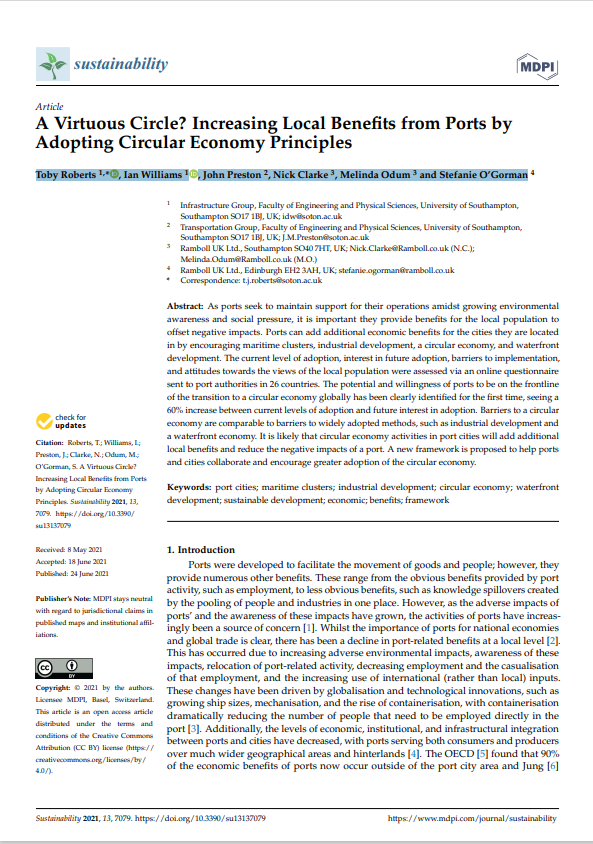Abstract
As ports seek to maintain support for their operations amidst growing environmental awareness and social pressure, it is important they provide benefits for the local population to offset negative impacts. Ports can add additional economic benefits for the cities they are located in by encouraging maritime clusters, industrial development, a circular economy, and waterfront development. The current level of adoption, interest in future adoption, barriers to implementation, and attitudes towards the views of the local population were assessed via an online questionnaire sent to port authorities in 26 countries. The potential and willingness of ports to be on the frontline of the transition to a circular economy globally has been clearly identified for the first time, seeing a 60% increase between current levels of adoption and future interest in adoption. Barriers to a circular economy are comparable to barriers to widely adopted methods, such as industrial development and a waterfront economy. It is likely that circular economy activities in port cities will add additional local benefits and reduce the negative impacts of a port. A new framework is proposed to help ports and cities collaborate and encourage greater adoption of the circular economy.
